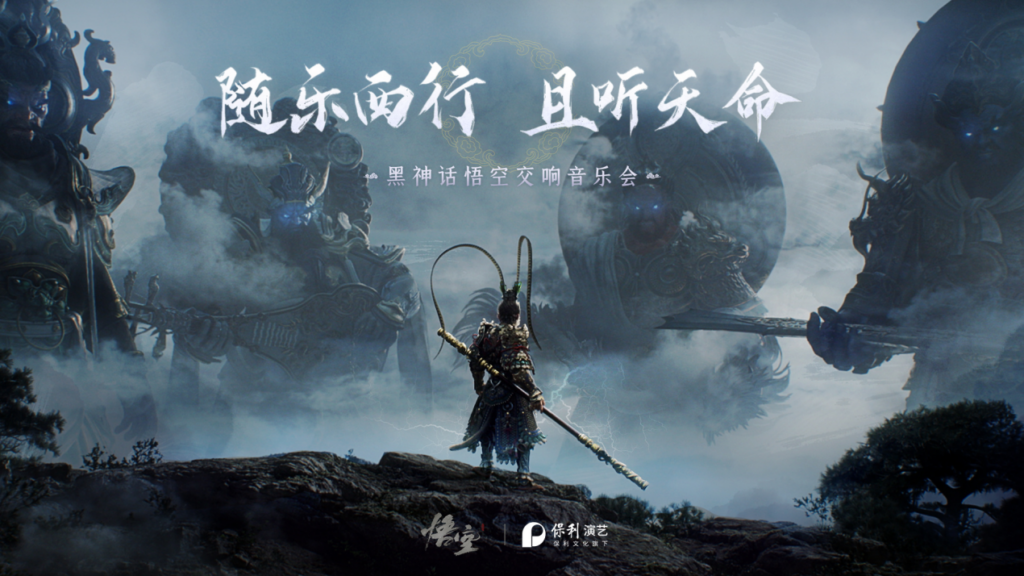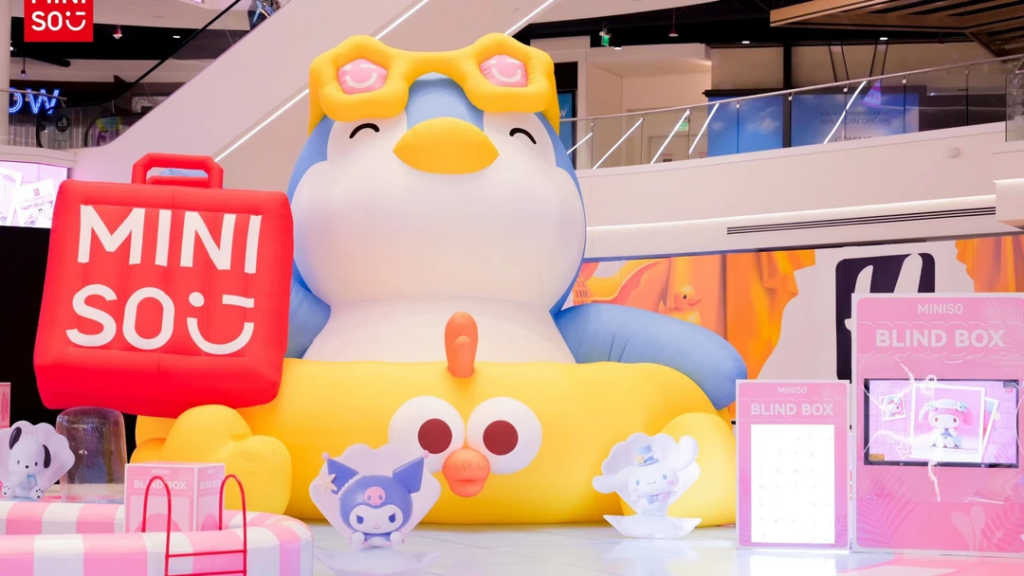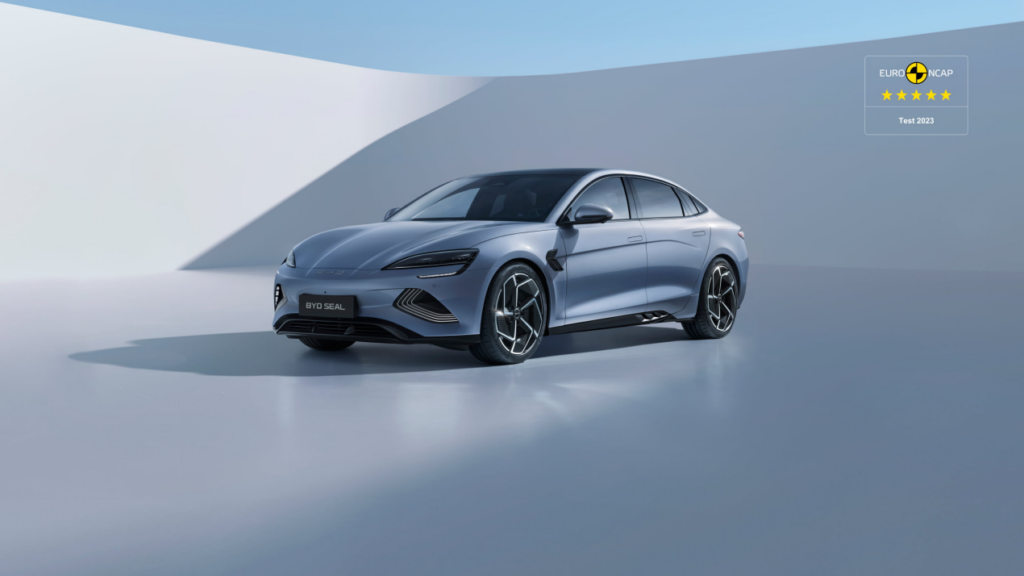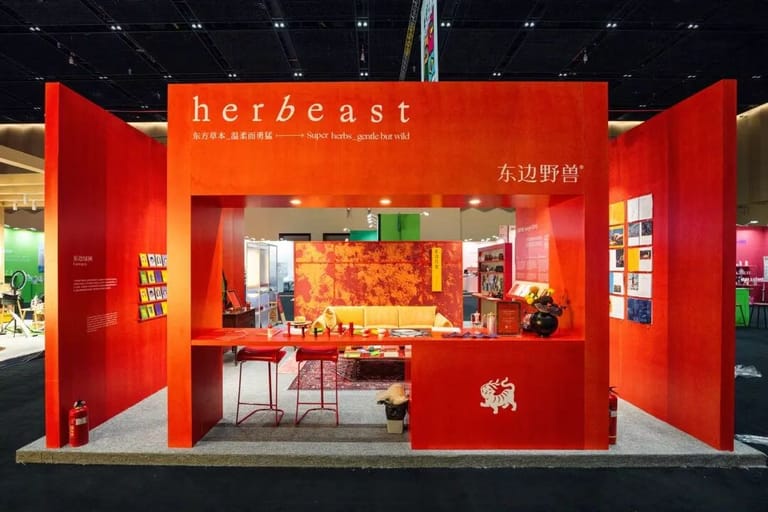Must-know Chinese Brands Thriving in 2024
By
Anqi Wen

Published on
February 18, 2025

2024 marked a pivotal transformation for Chinese brands, ushering in an era of ‘Created in China’ instead of ‘Made in China’ that signifies not just origin but a shift towards innovative excellence that will allow Chinese brands to compete globally.
Building on this legacy of innovation, Chinese companies have shifted from supporting roles to leading roles in global markets. This was evidenced by groundbreaking developments from BYD in EV technology, Miniso in experiential retail, and Black Myth: Wukong’s hugely successful rollout on the global gaming scene. This year, Chinese companies showcased how they are shaping industry trends, integrating cultural narratives, and driving new standards for creativity and strategic expansion.
Black Myth: Wukong-A Cultural Gaming Phenomenon

A standout example of this transformation is Black Myth: Wukong, a cultural gaming phenomenon launched on August 20, 2024, on PS5, Steam, Epic Games Store, and WeGame. Inspired by Journey to the West, the game became a breakout success, merging stunning visuals with intricate storytelling rooted in Chinese mythology.
By November 2024, Black Myth: Wukong had surpassed $1 billion in revenue on Steam alone. This milestone underscores China’s emerging dominance in the global gaming industry, securing a position among the platform’s top 10 bestsellers. IGN China awarded it a perfect score of 10, while Twitch streams of the game amassed over 39.3 million viewing hours within the first week. More than a commercial triumph, the game sparked global discussions on Chinese folklore, with its detailed depictions of traditional architecture and historical themes generating newfound interest in China’s cultural heritage.
Domestically, the game’s popularity also had economic implications—tourist visits to Pingyao Ancient City, a major inspiration for the game’s setting, surged by 500 percent within three weeks of its release.Black Myth: Wukong proved that Chinese-developed games could compete internationally while serving as significant vehicles for cultural storytelling and soft power.
Miniso: The Rise of Experience-Driven Retail

In 2024, Miniso solidified its global expansion by focusing on “interest-driven consumption.” The brand transformed everyday retail into an experiential journey for consumers worldwide through strategic IP collaborations and immersive flagship stores. At its Global Brand Strategy Summit in Shanghai, Miniso reported an impressive 19.3 percent year-over-year revenue increase, totaling RMB 4.52 billion in Q3, signaling strong demand for engaging retail experiences. Its overseas revenue surged by 39.8 percent, with store counts exceeding 7,420 globally.
Miniso has established itself as a major player in global fast retail by merging affordability with thoughtfully designed collections, bridging high-end branding with mass-market accessibility.
CHAGEE: Modernizing Chinese Tea Culture

Premium tea brand CHAGEE took a bold step onto the international stage in 2024, opening its flagship store in Singapore’s Orchard Gateway. Under the slogan “Bringing Oriental Tea to the World,” CHAGEE redefined Chinese tea culture by blending modern aesthetics with traditional brewing techniques.
Beyond its beverage offerings, CHAGEE expanded into lifestyle collaborations, notably partnering with designer Angel Chen during Shanghai Fashion Week. By fusing fashion with tea culture, the brand successfully engaged younger, style-conscious consumers and positioned itself as more than just a beverage brand but a cultural ambassador for contemporary Chinese tea traditions.
WeRide: Pioneering Autonomous Driving

In 2024, WeRide made notable strides as a leader in the rapidly advancing field of autonomous driving technology. In October, WeRide went public on the Nasdaq, raising over $400 million—a pivotal milestone that underscores the growth potential and innovation of China’s autonomous vehicle industry.
WeRide’s AI-driven solutions continue to reshape urban mobility, reinforcing China’s role in advancing self-driving technology amid increasing competition from global leaders.
DJI: Leading Innovation in Aerial Technology

DJI maintained its position as the global leader in drone technology in 2024. At the NAB Show in Las Vegas, DJI unveiled its latest flagship drones, strengthening its dominance in professional aerial photography and industrial applications.
Beyond consumer drones, DJI expanded into logistics, agriculture, and security sectors, proving its adaptability in an evolving tech landscape. The company’s focus on automation and AI-driven innovation continues to set industry standards for drone technology worldwide.
JNBY: Redefining Fashion Through Community Engagement

Despite headwinds in the fashion industry, JNBY delivered a strong financial performance in 2024, with revenue reaching RMB 5.24 billion, a 17.3 percent increase year-over-year.
Through its “Not Just a Box” initiative, JNBY deepened consumer engagement by offering customized styling services and limited-edition collections. The brand’s ability to merge avant-garde design with community-driven retail has secured its place as a standout player in China’s evolving fashion landscape.
Melt Season: Elevating Chinese Luxury Fragrance

As China’s luxury fragrance sector gained momentum, Melt Season emerged as a trailblazer in 2024, making waves with its innovative interpretations of scent. The brand’s September entry into DFS luxury retail in Hong Kong positioned it as the first Chinese perfume house to secure a spot in the global duty-free market.
With backing from Estée Lauder’s New Incubation Ventures, Melt Season has leveraged traditional Chinese scent profiles to craft perfumes that resonate with global audiences, cementing its role as a pioneer in China’s high-end fragrance industry.
BYD: Driving China’s EV Revolution

BYD’s dominance in the electric vehicle sector reached new heights in 2024, surpassing 500,000 monthly sales for the first time in October. Its Seal series secured third place at the 2024 European Car Body Awards, reflecting BYD’s historic achievement as the first Chinese automaker to be recognized and underscoring the growing influence of Chinese innovations in the global automotive sector.
According to EV Volumes, BYD delivered over 1.19 million electric vehicles between January and May 2024, accounting for 21 percent of global EV sales. The company’s success was fueled by technological breakthroughs, notably its revolutionary Blade Battery, which enhanced both efficiency and sustainability.
As the only Chinese automaker featured in TIME Magazine’s TIME100 Companies index for 2024, BYD stands as a testament to China’s transition from an industrial powerhouse to a leader in global mobility innovation.
Looking Forward Towards Success
Throughout 2024, a new era for Chinese brands was underscored, with innovation, strategic branding, and cultural storytelling shaping the global landscape. Companies are no longer just competing in international markets—they are setting new industry standards and redefining how global consumers perceive Chinese creativity.
The challenge ahead lies in maintaining authenticity while adapting to diverse market demands. Those who master this balance will sustain their success and pave the way for an era where Chinese creativity is recognized and celebrated worldwide, solidifying China’s role as a beacon of innovation for generations to come.












